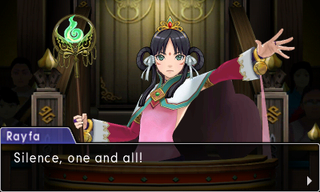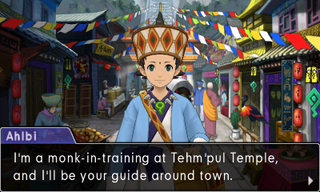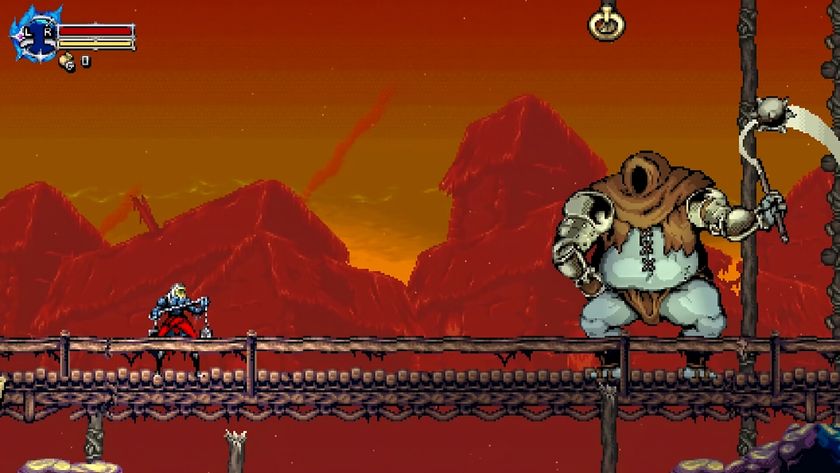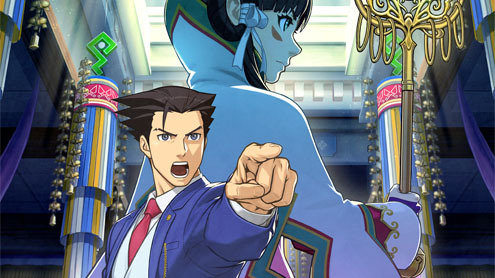12DOVE Verdict
Spirit of Justice strikes right to the core of what makes Ace Attorney games great: bold, dramatic narrative, a ridiculous sense of humour, and outstanding writing. The first truly superb AA game in years.
Pros
- +
Silliest witnesses to date
- +
A story that’s truly monumental
- +
So many puns
Cons
- -
Old problems still persist
- -
Pacing is occasionally off
Why you can trust 12DOVE
Phoenix, old friend, you had me worried. After the original trilogy of Ace Attorney games concluded almost a decade ago (and even earlier, in Japan), many fans, myself included, felt a fitting end to the series had been reached, that Phoenix Wright’s story was over. The games that followed – Apollo Justice, Ace Attorney Investigations, and Dual Destinies – captured some of what made that first trio so special, but none of them felt like a true step forward. With series creator, director, and scriptwriter, Shu Takumi, moving on to pastures new, many felt that Ace Attorney had had its day. As it turns out, we needn’t have fretted: in a turnabout worthy of Wright himself, Spirit of Justice secures its place as one of the best Ace Attorney games ever.
For the unenlightened, Ace Attorney games are all about deduction. That, and reading. They’re visual novels, casting you as defence attorney Phoenix Wright, who’s got to prove his client’s innocence by picking holes in arguments presented by the prosecution. This normally involves yelling “OBJECTION!” when you find a contradiction in a witness testimony, and presenting some contradictory evidence. Make too many errors and the prosecution wins. There’s some variation beyond that crude explanation, but that cuts to the core of courtroom scenes, while outside of court, it’s a simple point-and-click adventure. Mechanically, then, it’s pretty uninteresting, but the “gamey” aspects only really exist to keep you on your toes as you read page after page of masterfully written text.

And what text it is. Location names come click-clacking onto the screen, as though from some hidden stenographer, while dialogue flickers quickly on and off the screen when coming from an excitable witness, or trickles slowly when someone’s more reluctant to speak. Emphasis is added phonetically with screams, for example, sprawling wildly across the textbox. No need for voice acting when the text is so alive.
That’s not to undersell the the tale those words tell, either. Kudos, in particular, to the localisation team, who manage to translate puns, language jokes and rhyming witnesses with aplomb. Ace Attorney has always delighted in both the macabre and the whimsical, and it skews both ways here: the narrative focuses primarily on a country, Khura'in, under a royalist regime where trials only hand down guilty verdicts, and lawyers are sentenced along with their clients. It’s dark, it’s bleak and it’s set on a much grander scale than ever before, with not just a lone client at stake, but a whole political system. The rebels vs royalists tension that underpins the main story is the defence vs prosecution argument writ large, a most epic examination of a question that’s been posed by the series since day one: what is true justice?

If that all sounds too much, then fear not, because at the other end of the spectrum, the melodrama is offset by unabashed silliness. One character muses “why do I always get the weird ones?”, in reference to the case’s witnesses, and they’re not wrong – there’s some deeply strange individuals to be found here, and each is animated with unparalleled charm and personality.
All of this is a sign of a team that’s grown confident to carve its own path, after years in the shadow of Takumi’s seminal trilogy. Where those original games almost always ended cases with epic temper tantrums from the cornered evildoer, here cases sometimes resolve in unexpected ways, sometimes more melancholy than triumphant. Tellingly, the fan service is much lighter here, too: references to previous games never feel shoehorned in, as they have on previous occasions, often taking the form of subtle nods to the seasoned fan, rather than familiar face after familiar face. Instead of constant callbacks, it takes time to show how the characters have changed, grown up, evolved, giving even more depth and credibility to already well fleshed-out characters. Stepping into Athena and Apollo’s shoes is almost nostalgic, feeling like a return to Wright’s rookie days, as he’s now much less flappable – a confident, seasoned lawyer, as he should be at this point in his career.

Oh, and the punning? Phenomenal. I don’t want to spoil many, but one of the first new characters introduced is a tour guide by the name of Ahlbi Ur’Gaid, and it only gets better from there.
Other than a bold new story, not a huge amount is new, though considering each game has introduced new gimmickry for a while now (I’m looking at you, Mood Matrix), that’s not entirely a bad thing. Apollo’s Perceive ability returns, as does Phoenix’s Psyche Locks and Athena’s Analytical Psychology skills, but they’re used more sparingly, and only when they make sense. And, of course, Spirit of Justice has a new idea of its own – Divination Sèances. In the kingdom of Khura'in, where much of the game is set, the last moments of the deceased can be revealed, supposedly unveiling the real killer. Often, though, the conclusions the prosecution draws from these sèances are faulty, giving you yet another chance to loudly object. It’s a genuinely clever mechanic that adds tension to the early stages of a case, and requires some more abstract thinking than the standard gameplay, though it’s unfortunately rather underused.
Despite all this, though, the problems of old persist. It’s still stringently linear, and occasionally tips its hand too soon, letting you spot a piece of key evidence but making you jump through multiple hoops before allowing you to smugly reveal it to the court. Likewise, the investigation sections remain weak, with the best approach usually being “click everything and talk to everyone”. Although the pacing is largely excellent, some sections could certainly have benefited from a little streamlining. There’s nothing here that’s going to convince previous Wright detractors to join the fold, but disillusioned players who have bemoaned the series’ downward slide in quality will come out of Spirit of Justice seriously impressed.
More info
| Genre | Adventure |

The devs of a legendary indie Zelda-like have a new retro action game with "bumpslash" combat, and its Steam Next Fest demo is a gem: "Fans of Ys, take note!"

And you thought Hollow Knight: Silksong is late – 37 years in the making, this retro Metroidvania has a whip-smart Steam Next Fest demo that's as Castlevania as it gets

Razer has launched its Kuromi Collection in the US so I've turned my cozy gaming setup into a pretty purple Sanrio paradise
Most Popular



